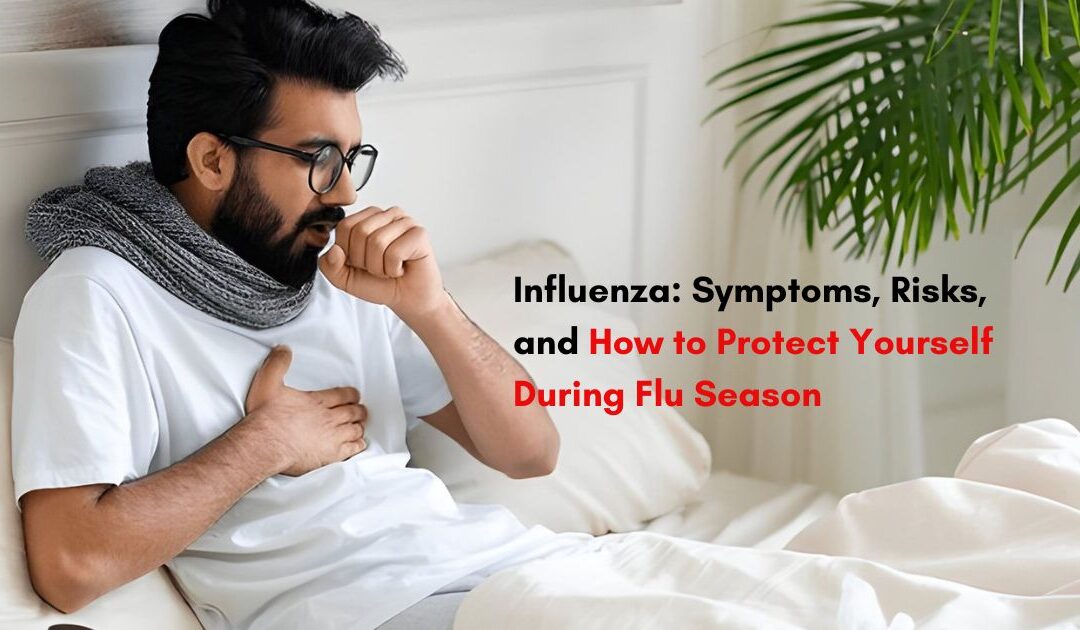
Influenza: Symptoms, Risks, and How to Protect Yourself During Flu Season
Influenza, commonly known as the flu, is a contagious viral infection that affects the respiratory system, including the nose, throat, and lungs. It spreads quickly, especially during flu season, which typically peaks in late autumn and early winter. While most cases of influenza are mild, some can lead to serious health complications, particularly for vulnerable groups.
Symptoms of Influenza
Influenza symptoms can range from mild to severe and may appear suddenly. Common symptoms include:
- Fever: Often high, but not everyone with flu experiences a fever.
- Cough or sore throat: A persistent dry cough is typical.
- Runny or stuffy nose: Accompanied by sneezing or nasal congestion.
- Body aches and chills: Muscle pains and chills are common indicators.
- Fatigue: Flu-related fatigue can be severe, lasting for weeks.
- Headache: A frequent but sometimes overlooked symptom.
- Diarrhea and vomiting: More common in children but can occur in adults.
Complications of Influenza
While many people recover from the flu within a week or two, certain individuals are at higher risk of developing severe complications, such as:
- Pneumonia: An infection of the lungs that can be life-threatening.
- Bronchitis: Inflammation of the bronchial tubes.
- Heart attack or stroke: Influenza can exacerbate pre-existing heart conditions, increasing the risk of heart attacks or strokes.
- Sepsis: A potentially life-threatening response to infection that can lead to multiple organ failure.
High-Risk Groups for Influenza Complications
Certain populations are more vulnerable to flu-related complications, including:
- Children under 5 years: Their developing immune systems are more susceptible to serious illness.
- Adults aged 65 years and over: The elderly are at higher risk due to weaker immune systems.
- Pregnant women: The immune system is naturally suppressed during pregnancy, making the body more susceptible to infections.
- People with pre-existing conditions: Individuals with heart disease, lung disease, or diabetes are at increased risk of flu complications.
- People with weakened immune systems: This includes those undergoing cancer
treatments, organ transplant recipients, or people living with chronic illnesses.
Preventing Influenza
The most effective way to prevent influenza is through annual vaccination, which is updated to combat the most common strains. Other preventive measures include:
- Frequent hand washing: Use soap and water or an alcohol-based sanitizer.
- Cover your mouth and nose when coughing or sneezing: Use a tissue or your elbow to prevent the spread of germs.
- Avoid close contact with sick individuals: Especially important for high-risk groups.
- Disinfect surfaces: Regularly clean objects and surfaces that are frequently touched.
When to Seek Medical Care
If you’re experiencing symptoms of influenza and belong to a high-risk group or have worsening symptoms, it’s crucial to seek medical attention. Early intervention can prevent complications and speed up recovery.
Feeling under the weather? Visit Dr. MV Rao for expert care and a personalized treatment plan to help you recover quickly and safely from the flu.



